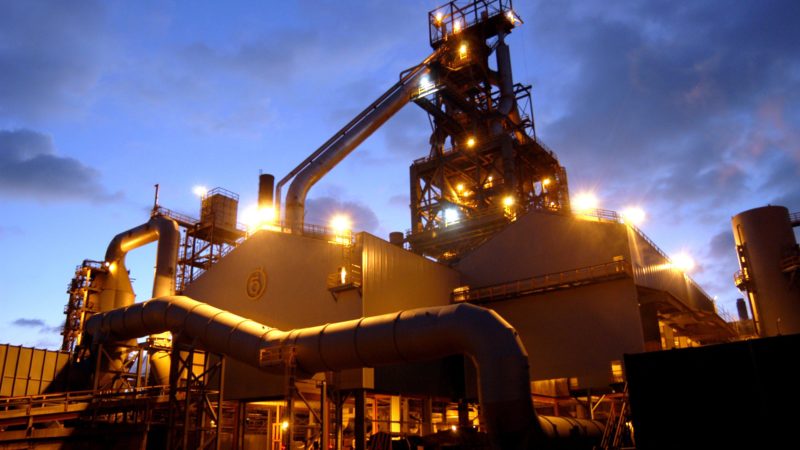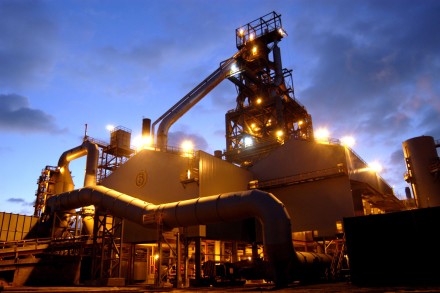

Carwyn Jones will today tell David Cameron to consider “public ownership” of the Port Talbot steelworks as hopes flickered that an Indian tycoon could take over the struggling plant without mass redundancies.
Jones will push a reluctant prime minister to consider temporary nationalisation until a buyer for the Tata Steel mill is found. Cameron has said nationalisation is “not the answer”.
The Welsh First Minister is set to meet Cameron as the Tory government struggles following its shambolic response to the crisis in the steel industry.
The showdown between Jones, Cameron, George Osborne and new Welsh Secretary Alun Cairns comes as:
- Sanjeev Gupta, chief executive of steel producer Liberty House and a possible buyer of Port Talbot, said thousands of jobs could be saved after a deal but the plant would have to close its blast furnaces and switch to recycling scrap metal.
- Union leaders warned that Tata or possible buyers must not be allowed to “cherry-pick” assets, putting the future of the industry at risk in Britain.
- Sajid Javid, the under-fire Business Secretary, is sent to Mumbai to hold talks with Cyrus Mistry, chairman of Tata.
- Jones recalled the Labour-run Welsh Assembly to debate the crisis yesterday.
- Angela Eagle, shadow Business Secretary in Westminster, accused the Tories of being “missing in action” in discussions over the future of Port Talbot.
Yesterday Jones used a specially-made video to say it would be a “strategic disaster” if Britain could not produce its own steel.
“We’ve been working hard behind the scenes for months to try to prevent a closure but there’s still uncertainty and threat to the plants across Wales.
“Now we need the UK Government to help out because, when the banks went bust, the UK Government was there to pick up the pieces.
“Now there’s a moral, economic and strategic case to see the same kind of response for our steel producers.”
Gupta, whose Liberty House firm is in the process of buying two Scottish steelworks from Tata, has spoken to the British Government about buying the Welsh business but changing its focus in order to preserve jobs.
“We have an alternative suggestion which is to still make hot metal but to make it from local raw material rather than imported raw material, so it’s a change of technology rather than ending liquid steel making,” he told the BBC.
“If we get involved in Port Talbot we will only do so on the basis that we are confident there will not be any mass redundancies.”
Industrial trade unions met at the TUC in London yesterday and set out three demands:
- The Government must guarantee the production of Tata’s UK steel operations so customers are not lost following Tata Steel’s announcement last week.
- Ministers must work to ensure the integrity of the business is guaranteed. SSI has shown that a blast-furnace only operation in the UK is not sustainable. Allowing Tata or other investors to cherry-pick assets will put steelmaking at risk.
- The plants are viable but they require investment. The issue is not competing on cost but the attractiveness of the product range. This means the business needs the investment originally planned by Tata – understood to be £1.5bn over 10 years. This level of investment should be achievable given that any buyer would be gaining control of assets worth £4bn. But Government support is needed to bridge the two to three years it will take to get back to self-sustainability. Within European rules, the Government can support the business with:
Green investment – in a new power plant, the coke ovens and the blast furnace to make Port Talbot a world class example of low-carbon, blast furnace steel making.
R&D investment – to enable the business to develop high value products that can secure new markets and sustain the business.
Skills investment – to support a transition to high-value, low carbon steel production.




More from LabourList
Letters to the Editor – week ending 22 February 2026
‘The coastal towns where young people have been left behind by Whitehall’
‘How Labour is modernising transport in Wales with fairness at its heart’